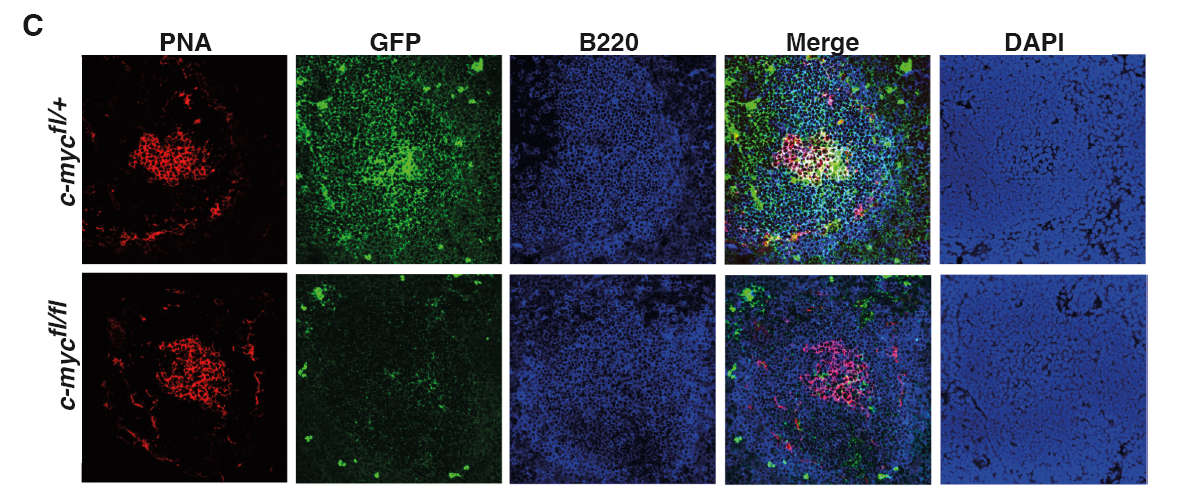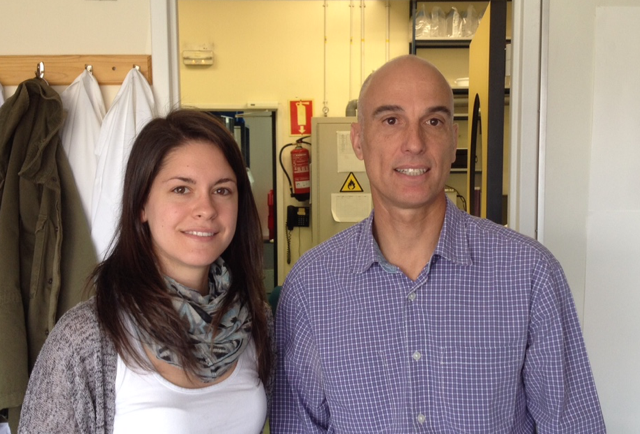Ignacio Moreno de Alborán
Group Leader
Research summary
At present, with 1.7 million deaths each year, cancer represents the second most important cause of death in Europe. In up to 50% of all human cancers, constitutively enhanced expression of proto-oncogenes of the myc family is a characteristic signature.
Publications
Pérez-Olivares M, Trento A, Rodriguez-Acebes S, González-Acosta D, Fernández-Antorán D, Román-García S, Martinez D, López-Briones T, Torroja C, Carrasco YR, Méndez J, Moreno de Alborán I. Functional interplay between c-Myc and Max in B lymphocyte differentiation. EMBO Rep 2018; 19: e45770
Lee YY, Moujalled D, Doerflinger, M, Gangoda L, Weston R, Rahimi A, Moreno de Alboran I, Herold M, Bouillet P, Xu Q. CREB-binding protein (CBP) regulates beta-adrenoceptor (beta-AR)-mediated apoptosis. Cell Death Differ 2013; 20:941-952
Fernandez D, Ortiz M, Rodriguez L, Garcia A, Martinez D, Moreno de Alboran I. The Proto-Oncogene c-myc Regulates Antibody Secretion and Ig Class Switch Recombination. J Immunol 2013; 190:6135-6144
 With more than 3 million new cases and 1.7 million deaths each year, cancer is currently the second most important cause of death in Europe. In up to 50% of all human cancers, constitutively enhanced expression of MYC family proto-oncogenes is one of the hallmarks (Burkitt lymphoma, breast and lung cancers). Myc proto-oncogenes are deregulated by various mechanisms such as rearrangements or other mutations in one of the three myc genes or by alteration of the signaling pathways that control their expression. The Myc proteins are members of a basic region/helix-loop-helix/leucine zipper (bHLHZip) transcription factor family (N-, L- and c-Myc) and are implicated in many biological functions such as regulation of cell cycling, differentiation, and apoptosis. Experiments in mouse tumor models strongly suggest that interference with the function of deregulated myc will have clear therapeutic impact on a wide range of aggressive and hitherto incurable tumors.
With more than 3 million new cases and 1.7 million deaths each year, cancer is currently the second most important cause of death in Europe. In up to 50% of all human cancers, constitutively enhanced expression of MYC family proto-oncogenes is one of the hallmarks (Burkitt lymphoma, breast and lung cancers). Myc proto-oncogenes are deregulated by various mechanisms such as rearrangements or other mutations in one of the three myc genes or by alteration of the signaling pathways that control their expression. The Myc proteins are members of a basic region/helix-loop-helix/leucine zipper (bHLHZip) transcription factor family (N-, L- and c-Myc) and are implicated in many biological functions such as regulation of cell cycling, differentiation, and apoptosis. Experiments in mouse tumor models strongly suggest that interference with the function of deregulated myc will have clear therapeutic impact on a wide range of aggressive and hitherto incurable tumors.
To activate or repress target genes, Myc proteins bind to conserved DNA sequences (E-boxes) on gene regulatory regions, for which Myc must form heterodimers with its partner, Max. The vast majority of related scientific reports to date assume that Myc/Max partnership is needed for all Myc functions. Max is highly conserved in evolution and is constitutively expressed in many cell types. Max can also heterodimerize with other proteins and antagonize Myc functions. Max thus has a central role in modulating the complex Myc protein network.
Our group is interested in characterizing whether Myc action on developing and mature B cells relies exclusively on its association with Max. Thus, we will challenge the current idea and explore the possibility of Myc function without Max in vivo using unique genetically modified mouse models.
The prevailing strategies for combating cancer in patients rely mainly on the use of non-specific cytotoxic drugs, whose severe side effects are a major drawback. New therapies that target specific key molecules involved in cell transformation are therefore pursued. c-Myc is a therapeutic target for human cancer, due to the broad range of malignancies in which this gene is activated. As the contribution of Max to Myc-induced B lymphoma in vivo is also unknown, we will also study whether Max is needed for generation and/or maintenance of these lymphomas. Hopefully, our work will open new strategies to tackle Myc-induced tumorigenesis and thus, improve human health.
.








